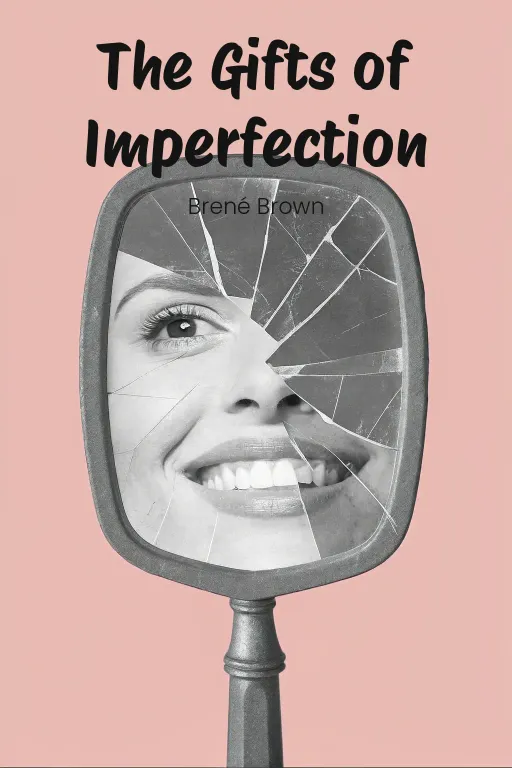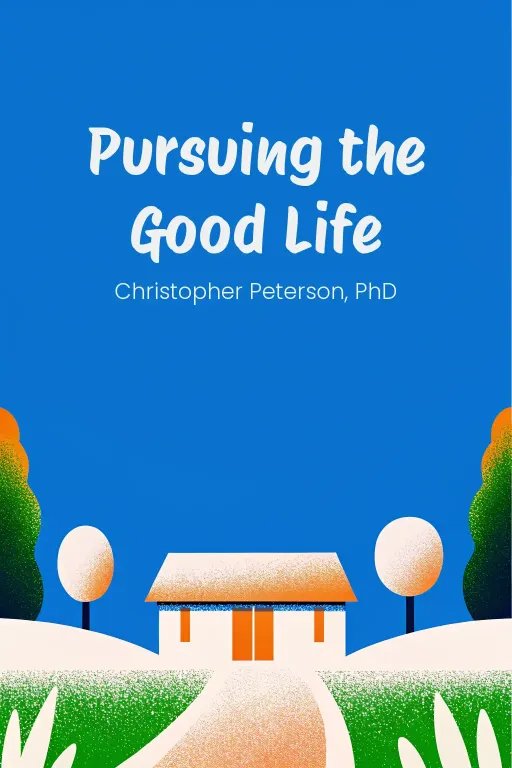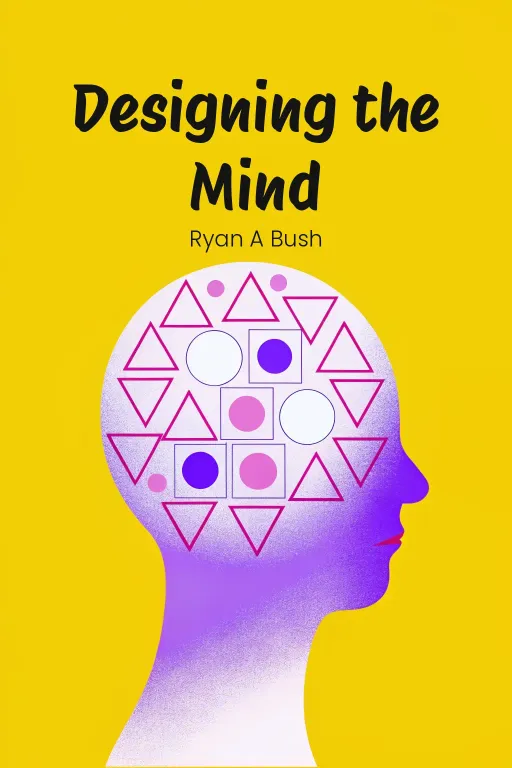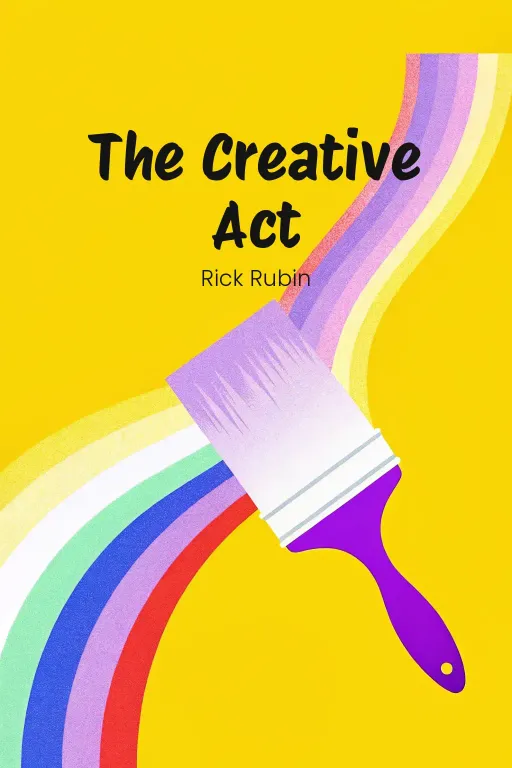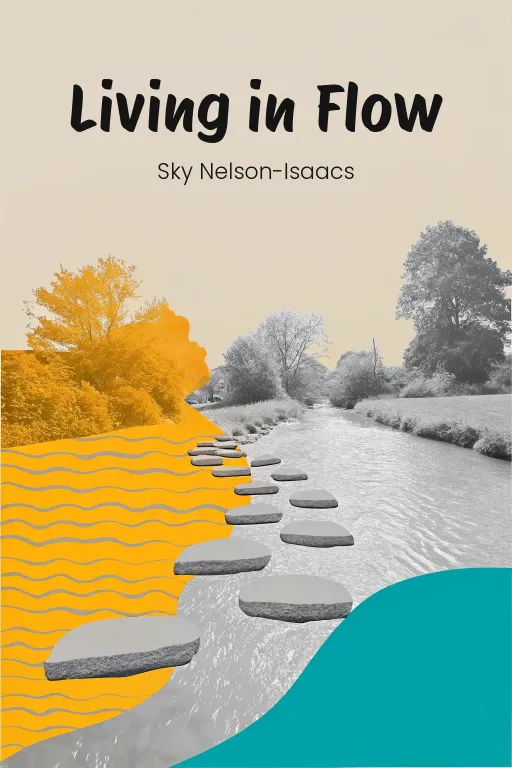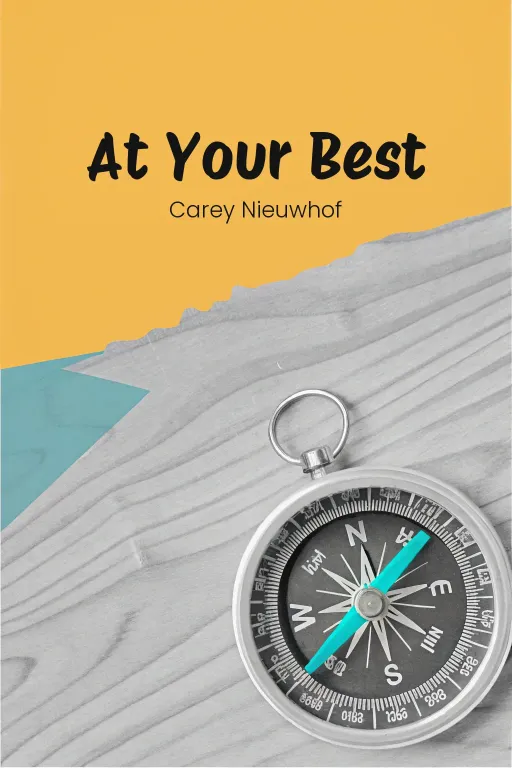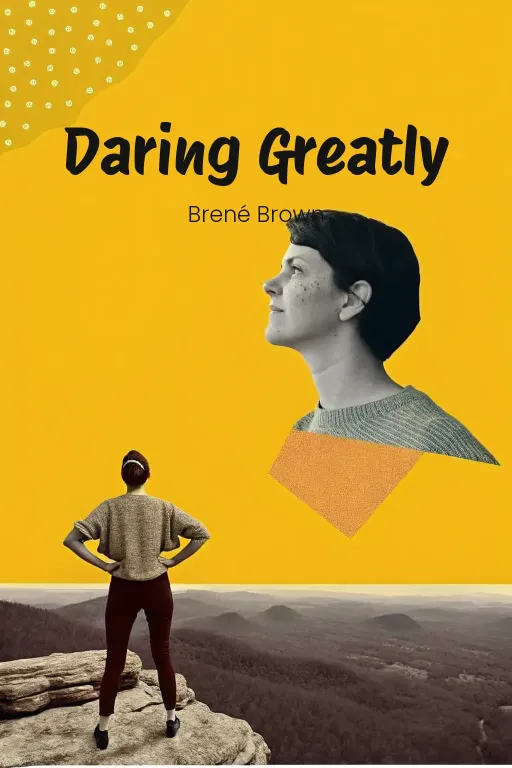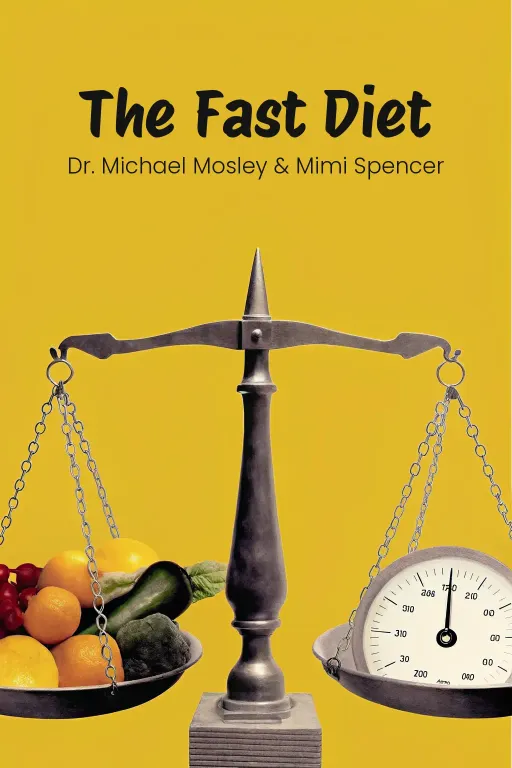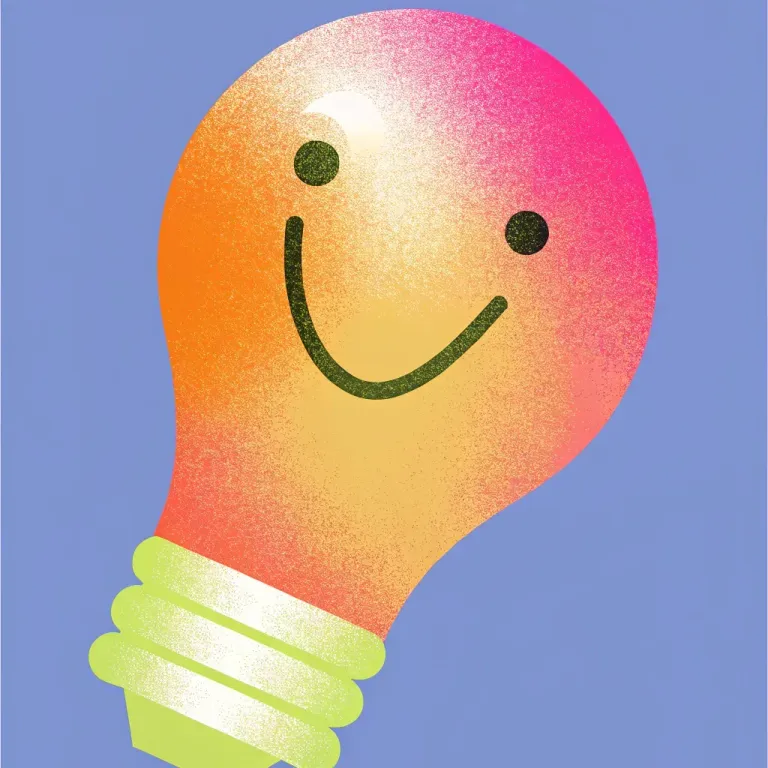
Stop Chasing, Start *Creating* Joy!
Podcast by The Mindful Minute with Autumn and Rachel
How to Turn Career Success into Life Success
Introduction
Part 1
Autumn: Ever feel like you're constantly chasing happiness, only to find it's just out of reach? You know, that feeling of emptiness even after you've "achieved" something? Well, you're definitely not alone. Today, we're diving into a really interesting idea: what if the problem isn't just bad luck, but actually the way we're wired to think about happiness? Rachel: Or, even better put, the way we unknowingly sabotage our own joy. Turns out, being human comes with some default settings that can make us pretty bad at being happy. And this book basically calls out those psychological pitfalls—labeling them as the "seven deadly sins of happiness." A bit dramatic, huh? Autumn: A little dramatic, I agree, but effective! But don’t worry—it's not all doom and gloom. The book also offers antidotes for each of these "happiness sins," and they're all backed by solid research. It's not just about pointing out the problems; it's about developing habits that actually shift you from self-sabotage to really embracing joy. Rachel: Exactly. The book's packed with research, personal anecdotes, and even practical exercises you can try out. So, today we're going to break down three key ideas. First, we'll look at the happiness paradox – why we're often so good at pursuing the wrong things. I'm skeptical, but ready to be proven wrong. Autumn: <Laughs> I like your spirit. Second, we'll tackle those infamous seven sins of happiness and their corresponding antidotes. Each sin highlights a common trap we fall into, like trying to control everything or constantly comparing ourselves to others, while also giving us ways to climb out. Rachel: Alright, and third, we'll explore strategies for creating a real, lasting shift in your mindset—practical ways to build resilience and cultivate joy in everyday life. So, we're talking big picture, but with concrete tools to help you actually get there. Sounds a bit fluffy, right? Autumn: I feel you, but trust me, it’s not. It’s a journey from confusion to clarity. And we're excited to walk that path with you today. So, let's dive in!
The Happiness Paradox
Part 2
Autumn: So,picking up on this happiness paradox, right? It really hits home when you realize, “Wait a minute, what I “thought” would make me happy… actually doesn't.” Rachel: It's a real wake-up call, isn't it? Like those MBA students who started out all about passion, then ended up chasing the big bucks. Why do you think this is such a common trap? Autumn: Well, a lot of it boils down to how we're programmed. From a young age, we're taught to equate success with external things—money, status, recognition. But the truth is, those things don't really connect with what “truly” motivates us, deep down. And “that's” the paradox: we chase what we're told “should” make us happy, rather than what actually “does”. Rachel: So we're basically like fish going after shiny lures, totally missing the hook, huh? That MBA example, with those societal expectations drowning out their own values… is there any way to break that cycle “before” it even starts? Autumn: It's a tough one, no question. The book doesn't try to make it sound easy—re-wiring your priorities takes effort. One of the main tools it suggests is structured self-reflection. And I'm not talking about just daydreaming here; it's very active and intentional introspection. I mean, imagine actually sitting down and journaling about the moments where you genuinely felt joy. You might realize those achievements that felt kind of empty came from chasing external validation. While the real happiness came from connections with people you care about, challenges, or passions. Rachel: Okay, but let's not underestimate how messy that can be. Because once you realize, “Hey, I've been focusing on the wrong things," you've got to deal with the consequences. How do you justify leaving that high-paying job or easing off the career climb when everyone else is cheering you on? Autumn: That's where "anchoring intrinsic rewards" comes in. The book suggests really methodically weighing decisions against your own happiness. So, instead of asking, "Will this look successful?" you ask, "Will this challenge me in ways I like? Will it help me grow as a person? Will it connect me with people or causes I care about?" By shifting the focus, you're moving away from what society tells you and focusing on yourself. Rachel: I like the concept, but let's be real, doesn't choosing "joy" over a steady paycheck still feel risky? Autumn: Absolutely, that fear is normal. But the book really encourages you to think long-term. I mean, lots of people live for those quick wins, only to burn out or feel stuck later on. And just by choosing to align your life with what matters, might mean some things have to give in the short term. But, the long-term happiness will more than make up for it in the end. Rachel: Okay, fine, but back to reality here. What's stopping people from actually “doing” this? Autumn: A lot comes down to the narratives we're constantly hearing. We're bombarded with the whole "more equals happy" idea. Luxury car ads that are basically saying, "Buy this, and you'll finally matter." It really gets into your head, that without these status symbols, you're somehow less. Rachel: Seriously though, social media practically injects that message directly into our veins. It's a constant arms race of who's living the dream—filtered sunsets, curated vacations, the whole deal. And that makes just stepping back and focusing on what “really” makes you happy feel, well… almost radical. Autumn: Exactly. And that's where something like mindfulness can be powerful. The book talks about mindfully evaluating influences, and practices like meditation can help you catch when you're falling into that comparison trap. By really tuning in to what you want, you're able to resist that external pressure. Rachel: Okay, but if we're being honest, mindfulness can seem like a quick fix for a bigger underlying issue. Like, how do you overcome practical things like financial pressure or societal judgment? Autumn: No, it doesn't just erase those big problems. But mindfulness helps you navigate those decisions from a more grounded place, so you react less. Think about the "paradox of choice"—the idea that too many options make us miserable. By doing these practices, you reduce decision fatigue and filter out choices that aren't a good fit for you. Rachel: Okay, let's dig into that a bit. The paradox of choice, so you're saying the modern world gives us like, six different kinds of oat milk, and instead of feeling free, we're just overwhelmed? And this applies to big stuff too, right? Autumn: Absolutely. The book uses the incredible example of a professional who's offered multiple job opportunities, but they just feel paralyzed—not because they aren't qualified, but because they're not sure which path best reflects their own joy versus everyone else's expectations. The pressure of choosing the right future makes you even more unhappy. Mindfulness helps you cut through the noise and focus on what truly aligns with your values. Rachel: So, happiness in this day and age is less about adding stuff and more about subtracting—tuning out the arbitrary "shoulds," and tuning in to what feels genuine for “you”. I get it now, the happiness paradox isn't just misdirection, it's misalignment. Autumn: Exactly! And by approaching that misalignment through that reflection, intrinsic anchoring, and mindfulness, you can redefine happiness on your own terms. It's that antidote to the happiness paradox, getting off the treadmill of those societal expectations and running toward what really makes you happy. Rachel: Okay, I'll give you this, this happiness thing might be simpler than we think, just not necessarily easier. If the exit is clearly labeled "realign with your values," we should probably stop running in circles.
Seven Deadly Happiness Sins and Their Antidotes
Part 3
Autumn: That paradox really sets the stage for understanding why we struggle with happiness and why we need to be more mindful about it. And that's where the "Seven Deadly Happiness Sins" come in. It's a framework that basically highlights the common ways we mess up our own joy and then gives us strategies, antidotes if you will, to cultivate more well-being. It's like a roadmap, right? Rachel: A roadmap we could all probably use, Autumn. Especially with common traps like constantly comparing ourselves to others and trying to control every little thing. So, where do we start? What’s the first “sin,” so to speak, and why is it such a big deal? Autumn: Okay, so the first one is "Devaluing Happiness." It's that sneaky habit of seeing happiness as less important than things like productivity or success. Society kind of pushes this idea, especially in places where work is everything. People think, "I'll worry about happiness later. Right now, I need to focus on my goals. I'll be happy someday." But here's the catch—putting happiness on the back burner usually doesn't lead to either success or joy. Rachel: Exactly! Because when does that "someday" actually arrive? So, the book used the MBA students as an example - they started out wanting meaningful work but ended up chasing those high-paying corporate jobs. What happened? Autumn: It really boils down to societal expectations. Those students came in wanting jobs that matched their passions, jobs that felt good on the inside. But then interview season started, and, bam, they felt all this pressure from the outside world. Suddenly, a fancy job with a huge salary seemed way better than doing something they actually cared about. It just goes to show how easily we can let outside pressures drown out what we truly value. Rachel: Right, so they traded "I'll do what makes me happy" for "I'll do what looks successful." Classic shiny-object syndrome. So, let’s say you realize you're in that trap, how do you get out? What does the book suggest? Autumn: The antidote here is consciously prioritizing happiness. One tool they suggest is "intentional scheduling." Basically, you set aside time for things that genuinely make you happy, like spending time with friends or doing your hobbies, and you treat those moments as super important. It's a way of making happiness a regular part of your life so it doesn't get pushed aside by work and chores. Rachel: Okay, I get that. But what about in the moment? You're at a crossroads, trying to choose between a high-paying job that looks great on LinkedIn versus a lower-paying job you're actually passionate about. What do you do then? Autumn: Okay, that's where reflective journaling comes in. The book talks about journaling to reconnect with what “really” makes you happy. Write about times when you felt really fulfilled, why, and what made those moments happen. It forces you to think about decisions not in terms of "What will people think?" but "What will make me feel good on the inside?" That clarity helps you make better choices, rather than just following what society tells you to do. Rachel: I like that. So, instead of just chasing validation, you're training yourself to stop and think about what you really want. Now, let's talk about another huge trap - this one feels almost like it's built into us - "Chasing Superiority." It's everywhere. promotions, Instagram likes... What's the problem with that? Autumn: "Chasing Superiority" is a result of comparison culture – the belief that your value depends on being better than others. You climb the ladder, win the award, post the perfect photo, but it doesn't truly satisfy you because you're caught in what the book calls "hedonic adaptation." You quickly get used to the achievement and immediately crave the next win. Meanwhile, studies show that fulfillment actually comes from entering a flow state, that focused immersion where you're so engaged in what you're doing that you lose track of time. Rachel: Like when you're so focused on a project that hours fly by, and you didn't even check your phone once. So how does the book suggest we break free from this cycle of chasing superiority and find that state of flow? Autumn: First, by identifying activities that align with your strengths and passions. It could be cooking, writing, coding – whatever taps into your unique skills and offers just the right amount of challenge. The idea is to create a life where those activities are central. Second – and this is where it gets tough for some people – reduce your social media usage. Platforms like Instagram amplify toxic comparisons, making us focus more on how we measure up against others instead of what we authentically enjoy. Rachel: That makes a lot of sense. Social media definitely fuels that superiority complex. People aren't posting about their messy, real lives. They're posting highlight reels. So, let's say someone cuts back on social media. What's the next step in finding flow? Autumn: Reflecting on past moments of flow is essential. Think back to times when you were happy and completely absorbed. What were you doing? What conditions allowed you to focus? Revisiting those moments helps you identify patterns and recreate them. Rachel: Alright, so we’ve covered devaluing happiness and chasing superiority. Let’s tackle one more – how about “Desperation for Love?” Now, this one resonates for obvious reasons, because let’s face it, most of us want to feel loved. How does that go from natural to a "sin?" Autumn: Well, the problem isn't wanting love itself. It's going to extremes. Some people become too clingy, constantly needing reassurance, while others avoid vulnerability because they're afraid of getting hurt. Both approaches come from a place of desperation rather than genuine connection. The book says instead of obsessing over being loved, we should focus on giving and nurturing love, which creates a much healthier foundation for relationships. Rachel: Makes me think of that study they mentioned about altruism. People who spent money on others were happier than those who spent it on themselves. What’s the connection here? Autumn: That study is a perfect example of the antidote: We are talking about nurturing love through selfless acts. When you give to others, whether it's time, money, or emotional support, it actually makes you feel more connected. It shifts the focus from "What can I get?" to "What can I give?" And that paradoxically fills you up in ways that desperately seeking love never could. Plus, regular acts of generosity just build stronger, more fulfilling relationships. Rachel: So, the takeaway is, if you want more love in your life, stop chasing it and start creating it. Got it! Simpler than it sounds, but definitely worth trying. And that’s three sins tackled - each one is kind of like a mirror showing us where we need to improve, and the antidotes offer some real hope too.
Strategies for Sustained Mindset Shifts
Part 4
Autumn: So, these sins and their antidotes lay the groundwork for a happier life, right? But really, it's the strategies for making lasting mindset shifts that tie everything together. This section really digs into how we can internalize these lessons, and it emphasizes the importance of community and self-awareness in making these changes stick. Rachel: Ah, so it's like, "Okay, great, you've identified the problems—now how do you avoid slipping back into those old habits week after week?" Makes perfect sense. Where does the book suggest we begin? Autumn: Well, the book starts with building what they call an "abundance orientation." It's about shifting away from the scarcity mindset that so many of us have—that feeling that things like happiness, success, or even love are limited. Instead, it promotes the idea that these resources are plentiful and that sharing or working together actually benefits everyone. Rachel: Scarcity thinking... That's like everyone fighting over the very last slice of pizza as if there won’t be another pizza soon, right? An abundance mindset suggests there's plenty to go around, or even that we can make more pizza together. Autumn: Exactly! Scarcity creates unnecessary competition; we hoard achievements, opportunities. But when you embrace abundance, you shift your focus to collaboration and genuine joy. The book talks about an accountant who, besides doing the usual number-crunching, volunteers to teach financial literacy in underserved communities. Balancing earning a living with contributing to society—that's a great illustration of abundance thinking. Rachel: So, instead of stressing about having “enough,” it's more about how your life can positively influence the world around you. Okay, let's get practical. What's the initial step in adopting an abundance mindset? Autumn: The first tool is spending time on "flow activities." Remember Mihaly Csikszentmihalyi, who came up with that term? It's that state where you're so immersed in something that time just vanishes. Painting, gardening, coding – it doesn't really matter what it is, as long as you completely lose yourself in it. Regularly doing these activities creates a sense of fulfillment that doesn’t depend on competition or comparing yourself to others. Rachel: Got it, so it's about engaging in activities that challenge and excite you, not just vegging out with Netflix. What else is there? Autumn: Another strategy is reframing what success means to you. Instead of defining success just by metrics like money, likes, or promotions, ask yourself: "What's the bigger impact of my work and my choices? How do they benefit other people or align with my values?" It shifts your mindset from "me against them" to "we're all in this together." Rachel: And if we're really going to embrace abundance, then generosity seems like the next logical step. What does the book say about that? Autumn: They call them "generosity projects." These are small, practical ways to give without expecting anything back—helping a colleague with a task, mentoring someone, volunteering your time. When your mindset shifts to giving, it reinforces the idea that there's always enough to share. And, that leads to more meaningful connections with others. Rachel: That makes sense. Abundance isn't just about money; it's also about emotional, relational, and even creative resources. But isn’t it tough to focus on abundance when you're dealing with intense competition or financial worries? Autumn: Absolutely, and that’s where the second strategy comes in: developing a growth mindset. Based on Carol Dweck’s research, this is the idea that skills, talents, even happiness aren't fixed; they grow with effort and learning. Adopting this mindset helps you reframe setbacks as chances for growth, not as dead ends. Rachel: Ah, the growth mindset—so when life gives you lemons, it’s not just about making lemonade; it’s about learning how to make lemonade even better. Or, hey, trying out lemon bars if the lemonade doesn't work out. What specific methods does the book suggest for really internalizing that mindset? Autumn: Well, the book emphasizes having accountability partners. Imagine you’re part of a group where everyone shares goals, has weekly check-ins, and celebrates each other's successes. So, for example, someone struggling to find work-life balance might be inspired by someone else’s success story. That kind of support system helps you stay on track, and it normalizes growth and openness. Rachel: I like the idea of having someone to cheer you on, or gently nudge you when you're slipping. But what if you don’t naturally have that kind of support network? Autumn: In that case, journaling can be incredibly helpful. Reflecting daily on what you've learned, what you’re grateful for, or even what didn’t go so well creates a feedback loop. It encourages self-awareness and highlights patterns. Asking yourself questions like, "Where could I have done better?" or "What did today’s challenges teach me?" can spark real progress. Rachel: Okay, accountability and self-reflection—what else? Autumn: The third key is mentorship. Whether you’re mentoring someone or being mentored, the exchange of ideas brings fresh perspectives. It isn't just about getting advice; it's about growing together through shared experience. Rachel: Alright, we’ve got abundance, growth mindset, and now, it seems, overcoming personal and societal biases. This sounds huge. What biases are we talking about, and how do they prevent happiness? Autumn: Societal biases push us to measure ourselves by external benchmarks of success: status, wealth, appearances. At the same time, personal biases—like fear of failure or self-doubt—prevent us from actively pursuing what truly matters to us. Together, they create this fog, making it difficult to see what we genuinely want. Rachel: Okay, but how do we break through that fog? It’s not as easy as turning on the high beams, I’m guessing. Autumn: Not exactly, but the book offers practical techniques, starting with mindfulness. Practices like pausing and observing your thoughts without reacting help you recognize when those biases are at play. So, for example, if you feel compelled to choose prestige over passion, stop and ask yourself, "What's driving this decision? Is it societal pressure, insecurity, or because it genuinely aligns with my goals?" Rachel: Sounds good in theory, but it takes practice to pause like that when you're in the middle of making a decision. What other tools are there? Autumn: There’s visualization, too. The book encourages you to envision a life free from societal judgments. In that reality, what would you prioritize? What work, hobbies, or relationships would matter most to you? That kind of exercise helps clarify your intrinsic motivations – the things you'd pursue regardless of external rewards. Rachel: And, let me guess: reframing failure is the final piece of the puzzle. Autumn: Exactly! Instead of thinking of failure as something to avoid at all costs, reframe it as a signpost on the road. The book suggests writing down past setbacks, along with the lessons you learned from them. Over time, this changes your internal narrative from "I failed; therefore, I'm not good enough" to "Failure is part of the process, and it's helped me grow in these specific ways." Rachel: Okay, I'm seeing the bigger picture here. Cultivate abundance, stay focused on growth, and clear away the biases that cloud our judgment. It’s not glamorous, but it’s practical. Autumn: Exactly. It's practical and powerful. These strategies aren't quick fixes; they're lasting tools for changing how we approach joy, fulfillment, and even challenges. When we weave them into our daily lives, we're not just building our own happiness, but we're also creating a ripple effect that benefits those around us.
Conclusion
Part 5
Autumn: Okay, today we’ve really dug into the happiness paradox, those seven sneaky happiness sins, and some very practical strategies for actually shifting your mindset long-term. I think, at its heart, it’s all about realizing how those societal pressures, even our own habits, can really distract us from what “truly” makes us happy. It's about learning to realign with what we truly value through reflection, mindfulness, and, you know, actually doing things that matter to us. Rachel: Exactly. So, whether it's fighting the urge to compare yourself to others, carving out time for those "flow" activities that absorb you, or even how you look at failure, the message is super clear: happiness isn’t some prize you win; it’s something you cultivate. It's about cutting through all the external "shoulds" and, instead, tuning into your own, internal compass. Autumn: So, here's what I hope people take away from this: Really ask yourself—are the decisions you're making guided by whatever you think will get you the most likes, or are they driven by what genuinely makes you happy? If you see a disconnect there, examine it, try to grow from it, and really start building in those small, intentional habits that keep you centered. Remember, happiness isn’t a destination you finally arrive at; it's a practice, something you do all the time. Rachel: And like any practice, it’s going to be messy, imperfect, and, yeah, it takes commitment. But in the end, maybe the real victory isn't even finding happiness—it's learning to create it for yourself.


